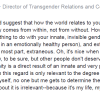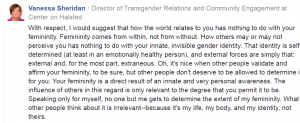Oh look, a detailed examination of Trump’s SLAPP suits, sweetly titled Donald J. Trump Is A Libel Bully But Also A Libel Loser. The author is Susan E. Seager.
Donald J. Trump is a libel bully. Like most bullies, he’s also a loser, to borrow from Trump’s vocabulary.
Trump and his companies have been involved in a mind-boggling 4,000 lawsuits over the last 30 years and sent countless threatening cease-and-desist letters to journalists and critics.[1]
But the GOP presidential nominee and his companies have never won a single speech-related case filed in a public court.
He had all the fun of bullying people though.
This article examines seven speech-related cases brought by Trump and his companies, which include four dismissals on the merits, two voluntary withdrawals, and one lone victory in an arbitration won by default. Media defense lawyers would do well to remind Trump of his sorry record in speech-related cases filed in public courts when responding to bullying libel cease-and-desist letters.
Or they could just say we look forward to discussing it with you in court.
Trump filed his first and crankiest libel lawsuit in 1984 against the Chicago Tribune and the newspaper’s Pulitzer Prize-winning architecture critic, Paul Gapp. Trump filed his libel lawsuit in the U.S. District Court in the Southern District of New York.[3] Trump claimed he suffered $500 million in damages.[4]
Gapp, who won the Pulitzer Prize for criticism in 1979, dared to publish a “Design” column in the Sunday Tribune Magazine on August 12, 1984 ridiculing Trump’s proposal to build the tallest building in the world: a 150-story, nearly 2,000-foot tall skyscraper on a landfill at the southeast end of Manhattan.[5]
Gapp wrote that Trump’s planned office tower was “one of the silliest things anyone could inflict on New York or any other city” and a kind of “Guinness Book of World Records architecture.” Gapp’s column said the “only remotely appealing aspect” of Trump’s planned office tower was that it would “not be done in the Fence Post Style of the 1970s.” The architect critic slammed the already-built Trump Tower as a “skyscraper offering condos, office space and a kitschy shopping atrium of blinding flamboyance.” Gapp wrote that Trump’s claim that the 150-story skyscraper would architecturally balance the two World Trade Center towers on the opposite side of lower Manhattan was mere “eyewash.”[6]
Gapp also gave an interview to the Wall Street Journal, telling a reporter that Trump’s plan was “aesthetically lousy” and complaining that the central part of Chicago “has already been loused up by giant-ism.”
Trump filed a libel lawsuit in New York, claiming that Gapp’s criticisms in the Tribune and the Journal were false and defamatory.
From the description his criticisms sound like criticism, which is legal.
(Oh – it’s just occurred to me. I wonder if that’s why Michael Nugent has been defending Trump – maybe he feels rapport with a guy who likes to sue people for defamation because they criticized him in public.)
The Tribune and Gapp filed a Rule 12(b)(6) motion to dismiss on the grounds that Gapp’s statements and the artist’s rendering were protected opinions, and U.S. District Judge Edward Weinfeld agreed, granting the motion to dismiss.[8]
Judge Weinfeld gave Trump a lesson in the First Amendment and politics: “Men in public life … must accept as an incident of their service harsh criticism, ofttimes unfair and unjustified – at times false and defamatory – and this is particularly so when their activities or performance may … stir deep controversy” …. “De gustibus non est disputandum, there is no disputing about tastes.”[9]
Judge Weinfeld, then 84, reaffirmed the First Amendment rule that “[e]xpressions of one’s opinion of another, however unreasonable, or vituperative, since they cannot be subjected to the test of truth or falsity, cannot be held libelous and are entitled to absolute immunity from liability under the First Amendment.”[10]
Judge Weinfeld explained that opinions expressed in the form of “rhetorical hyperbole,” “rigorous epithets,” and “the most pejorative of terms” are protected from liability, so long as the opinions do not veer to into factual accusations, such as accusing someone of a crime, unethical conduct, or the lack of professional integrity in a manner that would be proved true or false.[11]
Then there’s the one where Trump sued a writer for saying he wasn’t a billionaire. There’s a hilarious sample of his testimony:
Q: Now Mr. Trump, have you always been completely truthful in your public statements about your net worth of properties?
A: I try.
Q: Have you ever been not truthful?
A: My net worth fluctuates, and it goes up and down with markets and with attitudes and feelings, even my own feelings but I try.
Q: Let me just understand that a little bit. Let’s talk about that for a second. You said that the net worth goes up and down based on your own feelings?
A: Yes ….[29]
Then there’s one he filed against Bill Maher for saying he was fathered by an orang utan…
It’s a treasure-trove.





